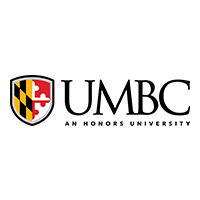Below is a summary of the abstract you submitted. Presenting author(s) is shown in bold.
If any changes need to be made, you can modify the abstract or change the authors.
You can also download a .docx version of this abstract.
If there are any problems, please email Dan at dar78@pitt.edu and he'll take care of them!
This abstract was last modified on April 30, 2018 at 6:31 p.m..

The ability to read and critically assess published research is of import to the education of STEM students, but identifying effective methods to foster critical reading skills remains notoriously elusive. Inclusive Research Education Communities (iREC), like SEA-PHAGES, engage learners by facilitating their immersion in an authentic, yet orchestrated student-owned research experience. This approach has been shown to correlate positively with students’ identification with and persistence in science. A main element of iRECs is that students from different institutions, and often with different backgrounds, address a specific scientific question, and that they do so with support from a centralized scientific and programmatic structure. In the SEA-PHAGES implementation, students and instructors are provided with detailed templates, protocols, software, databases and models that guarantee a sufficient degree of coherence and reproducibility among all the individual experiments carried out by undergraduates at different institutions.
The Gene Ontology (GO) is is a global community effort to define and systematize all the possible biological roles of a gene product. As such, it provides robust definitions for terms describing gene products and their logical relationships. Using GO, biocurators can formally describe the involvement of a given gene product in a particular biological process, its specific molecular function or its cellular location. This process, which maps gene products to particular ontology terms, is known as GO annotation. CACAO is an intercollegiate competition for GO annotation, in which students compete in teams to make GO annotations and critically assess and challenge those made by their peers. Much like in an iREC, the CACAO competition is operated through a centralized resource that provides training material and an intuitive wiki-based framework to assist students in the annotation process. Like in iRECs, students are free to decide what genes and aspects to annotate, find the necessary sources to do so, and open their work to critical assessment by their peers, but the overall structure of the GO and the CACAO competition provide enough constraints to make the critical reading exercise a collectively coherent experience.
Here we argue that the use of intra- or inter-campus CACAO competitions for GO annotation in the context of SEA-PHAGES complements and augments the iREC experience, providing a focused and well-defined layer of critical reading that is not directly addressed in the foundational iREC. After organizing five consecutive Phage Hunters CACAO competitions involving more than six colleges around the world, we report on a number of key elements that make the CACAO framework ideal for instilling and developing critical reading skills, and we put forward a CACAO unit implementation that maximizes the fostering of critical scientific reading and writing through structured dialog and iterative feedback.

